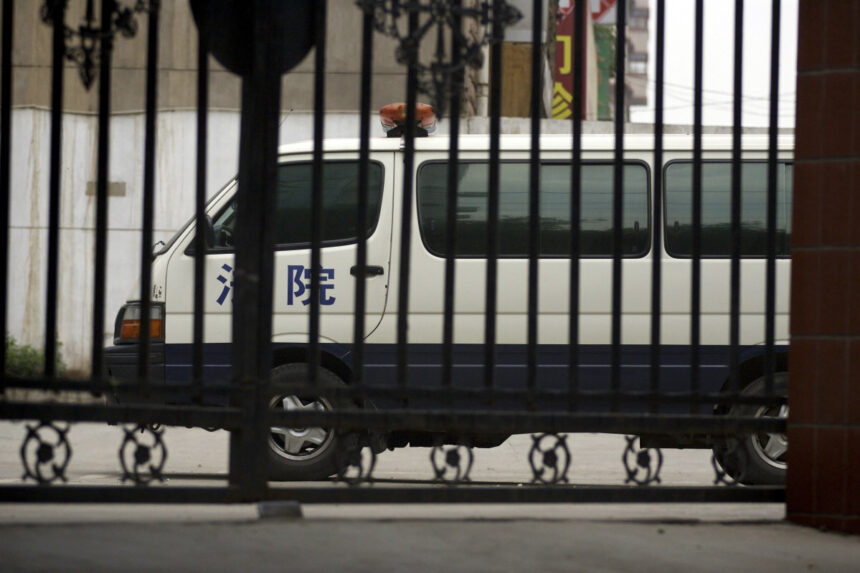A man in Shenzhen, China, has been sentenced to death by lethal injection for fatally stabbing a 10-year-old Japanese schoolboy in a case that sparked concern among Japanese expats living in China.
This sentencing came just one day after another death penalty case in Suzhou province, where a Chinese man attacked a Japanese mother and her child and killed a Chinese woman who intervened to protect them.
These verdicts follow a wave of high-profile executions by lethal injection recently carried out in China. Last year, three violent assaults involving foreign nationals were reported in the country. Shortly before the Suzhou case, four American college teachers were injured in a knife attack at a public park in Jilin, located in northern China.
Japanese companies such as Toshiba and Toyota advised their employees to take safety precautions in response to the Shenzhen attack. Panasonic even offered its workers free flights home.
In the Suzhou incident, local authorities stated that the attacker, 52-year-old Zhou Jiasheng, assaulted a Japanese school. Zhou reportedly acted after experiencing financial difficulties and losing his job, which led to feelings of despair. A Chinese court described the crime as “intentional murder” and justified the severe sentence by citing the crime’s significant societal impact.
Yoshimasa Hayashi, Japan’s Chief Cabinet Secretary, explained that while the court addressed the gravity of the crime, it did not mention Japan in its ruling. Officials from the Japanese consulate in Shanghai attended the sentencing.
Hayashi condemned the act as “unforgivable,” emphasizing the loss of innocent lives, including a child. He also expressed sympathy for Hu Youping, the bus attendant who died while attempting to protect the Japanese victims.
On Thursday, Mao Ning, China’s foreign ministry spokesperson, briefly commented on the Suzhou case. She mentioned that it was still undergoing judicial procedures while emphasizing China’s commitment to ensuring the safety of foreign nationals.
China has faced a rise in public violence, with many attackers reportedly targeting random individuals as an outlet for personal grievances. Official reports recorded 19 such attacks on strangers last year, a sharp increase from previous years.
Recent cases have drawn particular attention. On Monday, authorities executed a man who killed at least 35 people in a car attack considered the deadliest in a decade. In another case last month, a man was sentenced to death after stabbing eight people at his university. In December, a man who injured 30 people by driving into a crowd outside a school received a suspended death sentence.

Capital Punishment in China
China is widely recognized as the world’s leading executor, carrying out thousands of executions each year through methods such as firing squads, lethal injections, and mobile execution vans.
The exact number of executions conducted by the Chinese government remains unknown due to strict secrecy. The regime keeps these figures classified as state secrets, but estimates suggest the death toll is alarmingly high.
Firing squads and lethal injections are the most commonly used execution methods in China. Lethal injections were legalized in the 1990s and are sometimes administered inside the country’s so-called “execution vans.” In these vehicles, prisoners are reportedly restrained on a table and given the lethal injection.
There have been accusations that organs are harvested from executed prisoners without their consent, allegedly for medical use and scientific research.
Amnesty International has identified China as the world’s leading executor, with its annual execution numbers believed to exceed the combined totals of all other countries, reported at 657. Lethal injections have become the preferred method of execution in China, as they are considered less costly and more discreet.
Mobile execution vans were introduced in 2003, allowing executions to take place without transferring prisoners to a fixed location. Reports claim these vans are still in use despite earlier suggestions they had been phased out, according to Amnesty International.
Because of the high level of secrecy surrounding these mobile execution methods, victims are often unnamed, as trials and executions are carried out rapidly.
Related News:
Thailand, China and Myanmar Unite to Tackle Scam Gangs

Geoff Thomas is an award winning journalist known for his sharp insights and no-nonsense reporting style. Over the years he has worked for Reuters and the Canadian Press covering everything from political scandals to human interest stories. He brings a clear and direct approach to his work.














